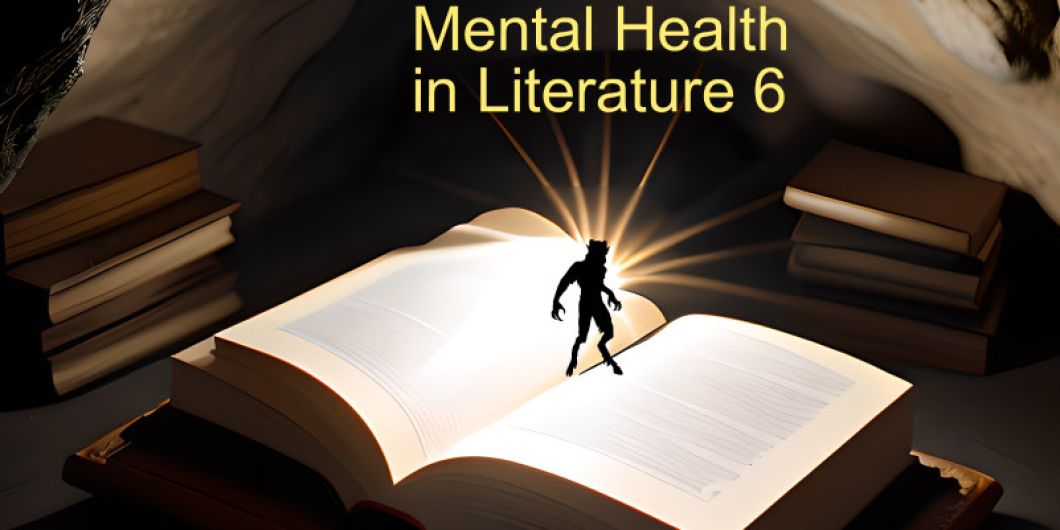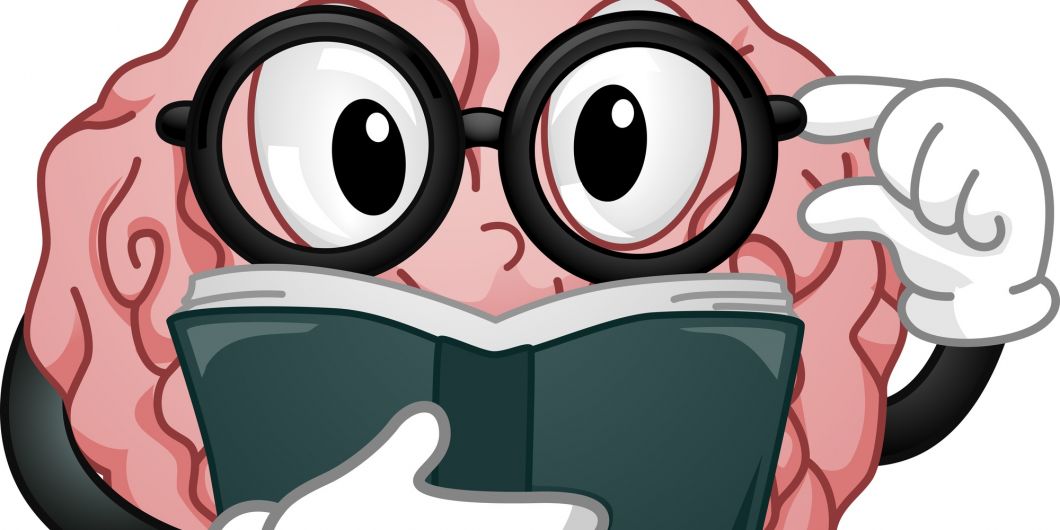Author Archives: Tony
- in Mental Health , Personality by Tony
Mental Health in Literature 6: Personality Disorder

- in Personality by Tony
Unlock the power of positive emotions with intellectual Humility

Intellectual humility is the recognition that our own beliefs and perspectives may be limited or incomplete. It is the willingness to consider alternative viewpoints, admit when we are wrong, and seek out knowledge from others.
This trait has been valued throughout history, but in today's polarized and information-saturated world, it is often overshadowed by arrogance and close-mindedness.
- in Relationships by Tony
Mental Health in Literature 5

To Kill a Mockingbird, a 1960 novel by Harper Lee, is an iconic masterpiece set in the 1930s Deep South that confronts American society's deep-seated prejudices and injustices. Positioned in the racially divided town of Maycomb, Alabama, during the Great Depression, the story follows Scout Finch, a young girl coming of age in a world filled with racial tension and injustice.
Anxiety and Therapy

Which therapy offers the best value for an anxious patient using either, Acceptance and Commitment Therapy (ACT), Cognitive behavioural therapy (CBT) or Dichotomy of control.
Acceptance and Commitment Therapy (ACT), Cognitive Behavioural Therapy (CBT), and the Dichotomy of Control are all types of therapies that can be effective for treating anxiety. However, the best therapy for an anxious patient in terms of value may vary depending on the individual's preferences, needs, and circumstances.
- in Mental Health , Self harm by Tony
Mental Health In Literature, Part 4

Today's articles look at the darker side of love with abuse, which requires reflection and consideration for the reader to contemplate. The 1955 novel Lolita, by Vladimir Nabokov, a Russian-American novelist, handles the controversial subject of hebephilia, a profoundly unsettling and controversial exploration of obsession and the demonic aspects of human nature.
The second is a 1994 film, A Child's Cry For Help, which also tackles the sensitive subject of Munchausen Syndrome by proxy in a dramatic and thought-provoking manner. The mother feeds off the sympathy, attention and benefits that are given to them by their community for taking care of a sick or vulnerable person in their care.
Mental Health In Literature, Part 3

Our previous session discussed how literature and the media manipulated public opinion and shaped people’s beliefs and behaviours.
Today, we have a closer look at Fake News. The Obsessive-Compulsive Disorder Spectrum and a book reflecting the counterculture movement and challenges the traditional values, institutionalisation and incarceration in the 1960s.
Can you guess what it is?
- in Relationships by Tony
Mental Health In Literature, Part 2:

The previous article briefly discussed how the power of literature was a deadly weapon through newspapers, radio, and other media outlets, used in antisemitic propaganda by Adolf Hitler to dehumanise and vilify his enemies, primarily the Jews he called parasites.
But also additional groups such as communists and non-Aryans, the word was used in Germany to describe a future genius race and then later labelled by philosophers as Social Darwinism to justify their despicable acts. [cited: Mein Kampf].
- in Relationships by Tony
- |
- 1 comments
Obsessive Love

Obsessive love can be described as an intense and overwhelming feeling of love towards someone, which can lead to controlling behaviour and possessiveness. It often involves an unhealthy attachment to the other person and can have negative consequences for both the lover and the loved one.
- in Health and Wellness by Tony
- |
- 1 comments
Literature in the field of mental health?

- in Emotional distress by Tony
Loneliness can have a significant impact on both your physical and mental health.

Although health professionals often use the term mental health, physicians recognise that many psychological disorders have physical roots. And this is why loneliness can significantly affect both your physical and mental health. In today’s fast-paced and connected world, it may seem counterintuitive to think loneliness is a prevalent issue. Loneliness is a serious problem that can significantly impact individuals. It is often referred to as the “loneliness epidemic” due to its increasing prevalence.
- in Health and Wellness by Tony
The World of Literature on Mental Health: Part One.

Welcome back: Our previous article briefly looked into the World of literature on mental health. We considered the early inclusion of mental health literature available to our young minds by viewing Christopher Robin’s friends and his mental state of mind. Leaving the door open for discussion concerning his imaginary friendship was either a coping mechanism or schizophrenia.
- in Health and Wellness by Tony
Bibliotherapy: A Book Club With A Difference

What is Bibliotherapy?
Bibliotherapy is a therapeutic approach that uses literature to support mental health and wellbeing. It involves the use of books, poems, and other written materials to help individuals understand and cope with their emotions, thoughts, and behaviours.
Bibliotherapy can be used in various settings, including schools, libraries, hospitals, and therapy sessions. Words and images in literature and poetry connect us to the past, showing that others have faced and overcome similar experiences. This brings comfort and reassurance that difficult times will eventually pass.
- in Mental Health by Tony
Introduction to mental health in literature

Mental health is an important and often misunderstood topic affecting millions worldwide. Raising awareness and promoting understanding of mental health issues is crucial to creating a more inclusive and supportive society.
In recent years, literature has emerged as a powerful tool for exploring and shedding light on mental health experiences. Through relatable characters and thought-provoking narratives, texts and their emergence into film enable nonmedical individuals to gain insights into various mental health conditions and foster compassion.
- in Mental Health by Tony
The impact of intrusive thoughts on your mental health

The continuous presence of intrusive thoughts can create a constant sense of unease and fear. They have the power to make you question your own morality and sanity. The toll they take on you is not only mental but physical as well.
The exhaustion caused by these persistent thoughts can affect your concentration, making it difficult to complete tasks or make decisions. Sleep disturbances may also occur due to the constant rumination induced by intrusive thoughts.
- in Anxiety by Tony
- |
- 1 comments
Is there a misunderstanding about anxiety in teenage girls?

Anxiety is a common emotion experienced by people of all ages, but have we misunderstood its impact on teenage girls?
In today's fast-paced, high-pressure world, it is essential to understand the unique challenges that young girls face.
- in Health and Wellness by Tony
Are We The Victims Of Our Genes

Why do you struggle to resist a sugary snack or struggle with anxiety?
The answer lies in our genes. Our genetic makeup plays an important role in shaping who we are and how we behave. Could it be possible that our genes are responsible for our circumstances?
- in Health and Wellness by Tony
Maintain a healthy mind.

A healthy mind is essential for overall well-being. It enables us to cope with the challenges of everyday life and maintain a positive outlook. But what does it mean to have a healthy mind?
It goes beyond just being free from mental illness; it encompasses having good mental health and emotional resilience. A healthy mind is characterised by clarity of thought, the ability to manage stress effectively, and the capacity to maintain balanced emotions.
- in Schizophrenia by Tony
Paranoid Schizophrenia: Learning and Managing this Condition

Paranoid schizophrenia is a complex and often debilitating mental illness that affects approximately 0.5% of the population.
Portrayed by a combination of hallucinations, delusions, and disorganised thinking, it can drastically impact a person’s ability to function in daily life.
In this article, we delve into the essential aspects of paranoid schizophrenia, including its symptoms, causes, and available treatments.